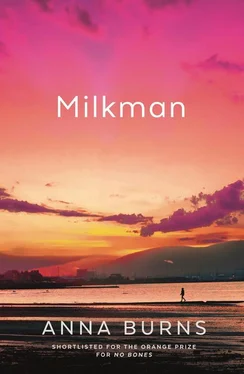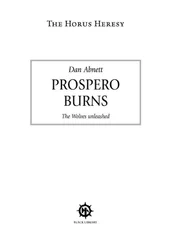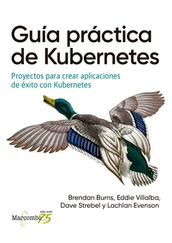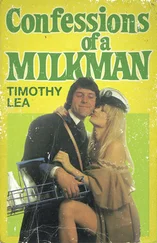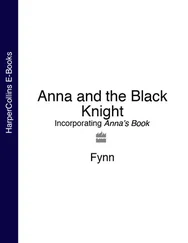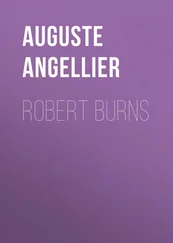Third time of the milkman was when he appeared not long after my adult evening French class. This class was downtown and it had surprising things. Often these would not be French things. Often too, there would be more of them than would be the French things. At this latest lesson, which took place on Wednesday evening, teacher was reading from a book. This was a French book, a proper French book – one that native speakers could read without considering it beneath them – and teacher said she was reading from it to get us used to what authentic French sounded like when strung together in full-on passages – in this case, a literary passage. Thing was though, the sky in this passage she was reading from wasn’t blue. Eventually she got interrupted because someone in the class – spokesperson for the rest of us – naturally couldn’t stand it. Something was wrong and he had a need, for the sake of all things generic, to point it out.
‘I’m confused,’ he said. ‘Is that passage about the sky? If it is about the sky then why doesn’t the writer just say so? Why is he complicating things with fancy footwork when all he need say is that the sky is blue?’
‘Hear! Hear!’ cried us or, if some of us, like me, didn’t cry it, certainly we agreed in sentiment. ‘Le ciel est bleu! Le ciel est bleu!’ shouted many of the others. ‘That would have cleared matters. Why didn’t he just put that?’
We were disturbed, and not a little, but teacher, she laughed which was something she did a lot. She did this because she had an unnerving amount of humour – another thing which ruffled us as well. Whenever she laughed, we weren’t sure whether to laugh along with her, to be curious and engaged and to ask why she was laughing, or to be sulky and offended and seriously up in arms. This time, as usual, we opted for up in arms.
‘What a waste of time and a confusion of subjects,’ complained a woman. ‘That writer ought not to be featuring in a French lesson even if he is French if he’s not doing anything about teaching it. This is “learning a foreign language” class, not a class on burdening us with taking things apart which are in the same language to find out if they’re a poem or something. If we wanted figures of speech and rhetorical flourishes, with one thing representing another thing when the represented thing could easily have been itself in the first place, then we’d have gone to English Literature with those weirdos down the hall.’ ‘Yeah!’ cried us and also we cried, ‘A spade’s a spade!’, also the popular ‘Le ciel est bleu!’ and ‘What’s the point? There’s no point!’ continued to come out of us. Everyone was nodding and slapping desks and murmuring and acclaiming. And now it was time, we thought, to give our spokespeople and ourselves a jolly good round of applause.
‘So, class,’ said teacher after this applause had died down, ‘is it that you think the sky can only be blue?’
‘The sky is blue,’ came us. ‘What colour else can it be?’
Of course we knew really that the sky could be more than blue, two more, but why should any of us admit to that? I myself have never admitted it. Not even the week before when I experienced my first sunset with maybe-boyfriend did I admit it. Even then, even though there were more colours than the acceptable three in the sky – blue (the day sky), black (the night sky) and white (clouds) – that evening still I kept my mouth shut. And now the others in this class – all older than me, some as old as thirty – also weren’t admitting it. It was the convention not to admit it, not to accept detail for this type of detail would mean choice and choice would mean responsibility and what if we failed in our responsibility? Failed too, in the interrogation of the consequence of seeing more than we could cope with? Worse, what if it was nice, whatever it was, and we liked it, got used to it, were cheered up by it, came to rely upon it, only for it to go away, or be wrenched away, never to come back again? Better not to have had it in the first place was the prevailing feeling, and that was why blue was the colour for our sky to be. Teacher though, wasn’t leaving it at that.
‘So that’s it, is it?’ she said, and she was pretending amazement which confirmed further our suspicions about her; in short, suspicions that she was none other than a beyond-the-pale person herself. For yes, even though I was downtown, which meant outside my own area, which meant outside my own religion, which meant I was in a class containing people who really did have the names Nigel and Jason, that didn’t mean disorders, disharmonies and beyond-the-pales couldn’t go on here as well. You got to know for instance, regardless of religion, who was of normal disharmony and who was a man-overboard person. Teacher certainly, appeared from the latter class. One thing that stood out was that French could never be sustained for long whenever she was the one teaching it. This evening as usual, English had taken over, which meant, also as usual, French was out the window. Next, she had us looking out this window. She had stridden over to it – a straight-backed woman on a majestic caparisoned horse – and had begun pointing through it with her pen.
‘Okay, everyone,’ she said. ‘You need to look at the sky. You need, right now, to look at that sunset. Magnificent! ’ Here she stopped pointing and tapping on the glass in order to inhale this sky. After inhaling it, which was embarrassing, she exhaled it with a giant ‘Aaaaahhhhh!’ coming out of her – more embarrassing. Then she went back to pointing and tapping. ‘Tell me, class,’ she said, ‘what colours – do you hear that, colours, plural – do you see now?’
We looked because she made us, even though sunsets weren’t part of our curriculum, but we looked and it seemed to us that the sky as usual was turning from light blue to dark blue which meant it was just blue. I knew though, since that recent alarming and alerting sunset I’d experienced with maybe-boyfriend, that that sky that night in the French class was neither those shades of blue. A person of any level of contrariness or entrenchment might have been pushed to have found any blue in the whole of our class’s window. We were pushed. Also we were adamant.
‘Blue!’
‘Blue!’
‘Perhaps a bit – no, blue,’ came our all-out replies.
‘My poor deprived class!’ cried teacher and again she was bluffing, pretending sorrow about our lack of colour, our hampered horizons, our mental landscapes, when it was obvious she was a person too defined within herself to be long perturbed by anything at all. And how come she was this? How come she was doing this antagonising, this presenting of an anti-culture to our culture when she herself was of our culture, where the same rules of consciousness regarding the likes of colour – regardless too, of church affiliation – as applied to us ought equally to have applied to her? But she was laughing again. ‘There is no blue in the whole of the window,’ she said. ‘Look again please. Try again please – and, class’ – here she paused and, for a moment, did become serious – ‘although there’s no lack of colour out there really – there’s nothing out there really . But for temporal purposes please note – the sky that seems to be out there can be any colour that there is.’
‘Testicles!’ cried some ladies and gentlemen and a frisson – the only French of the evening apart from ‘le ciel est bleu’ and that literary guff the guy in the book had been posturing – went through us. It seemed to our minds that no, what she was saying could not ever be true. If what she was saying was true, that the sky – out there – not out there – whatever – could be any colour, that meant anything could be any colour, that anything could be anything, that anything could happen, at any time, in any place, in the whole of the world, and to anybody – probably had too, only we just hadn’t noticed. So no. After generation upon generation, fathers upon forefathers, mothers upon foremothers, centuries and millennia of being one colour officially and three colours unofficially, a colourful sky, just like that, could not be allowed to be.
Читать дальше
